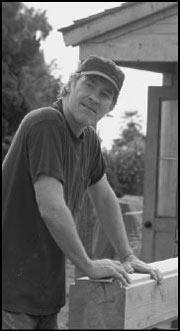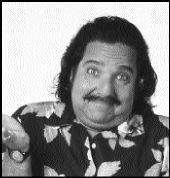LIFE AS A HOUSE
directed by Irwin Winkler with Kevin Kline, Kristin Scott Thomas, and Hayden Christensen opens Nov. 2 at Meridian and other theaters
SOME PEOPLE WILL love this movie. It’s got it all: an eccentric man dying of a terminal illness (Kevin Kline); an estranged (though not for long) ex-wife (The English Patient‘s Kristin Scott Thomas); a rebellious and estranged teenage son (Hayden Christensen, Anakin in next year’s Star Wars: Episode II); some hilariously uptight rich neighbors; a beautiful Pacific Ocean backdrop; plus some naughty bits to give it an edge. It’s a love story (or so its Hollywood producers clearly, calculatingly intend)— a love story about the real meaning of family, about what our time in this mortal coil can mean and what we can make it mean. It’s also got the demolishing of one house and the building of another as its painfully obvious central metaphor, and Kline endlessly speechifying about it—in case you miss the whole home-is-where-the-heart-is thing. (“All this has to come down before we can start again.”)
Life as a House seems promising from its first scenes: Wearing only his tighty-whiteys, Kline takes a morning piss in his yard in his fancy neighborhood, while his teen son attempts a huffing/auto- asphyxiation that brings the clothing rod of his closet crashing to the floor along with him and all his shirts. The film’s peppered with such risqu頭oments (a shower ejaculation scene, a friend pimping out the teen guy, etc.), ostensibly to save it from the realm of total cheese. (Here we detect the dark influence of American Beauty.)
But House‘s predictable, sentimental plot creaks on: father takes in son to straighten him out/give him the love he’s mysteriously been withholding all this time; destruction of old house is cathartic; building of new house builds character all around; ex-wife starts coming by to help—you see where all this is going, don’t you? Add in some very self-conscious acting (Scott Thomas is a particular offender, constantly biting her lip and looking like she’s trying to appear as if she’s about to cry), some stereotyped characters spewing pat dialogue, and an extremely pompous, soaring soundtrack, and you’ve got the ingredients for, um, a house?
A certain portion of its intended audience will call House uplifting, inspiring, and heartbreaking. Granted, it is a little bit funny, and it is a little bit affecting. It’s also extremely long and feels even longer. At the end, worn down by the Hallmark assault of its aggressive heartwarming, if a little tear ekes out of your eye, you may feel uplifted, inspired, and heartbroken—or you may feel manipulated, ashamed, and cheap.








